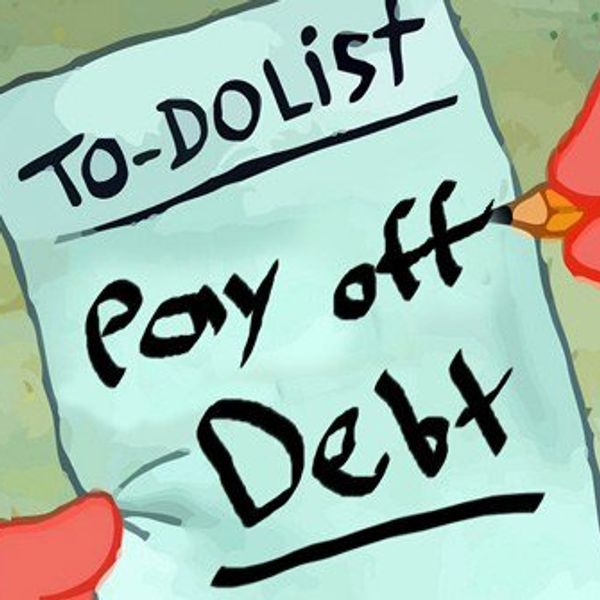A couple of months ago I published an article claiming that the national debt wasn't a problem. But that was before I learned the realities of our monetary system and how it actually worked. I later realized I was wrong. The national debt isn't just a non-problem, it's actually a virtuous thing that has done incredible things for this country. Getting rid of the national debt would be catastrophic. Here's why:
The national "debt" isn't even debt. It's an accounting identity.
Here's the difference between government debt, and private, personal, or household debt. Households, businesses, Individuals like you and me, and even state and local governments are users of dollars, but the federal government is the monopoly issuer of dollars, and can never run out of them. The government doesn't need to borrow what it has created in the first, there's no logic to that.
When people talk about us "owing money" they're talking about government bonds that the treasury sells. But we don't owe that bond money, we owe the interest, which as of right now is extremely low (under a three percent interest payment for a 30 year bond).The bond itself sits in a savings account at the Federal Reserve, and when the bond has matured, it gets switched to the Fed's checking account with the three percent interest attached with it. That's it. No implosion of the government, no massive debt passed on to our kids. Nothing. Just switching money from the Fed's savings account, to it's checking account.
As of right now, the total national debt for the United States Federal Government is about $19.3 trillion. And that only means one thing and one thing only: It means that since the birth of our country in 1787, our government has put in $19.3 trillion more into the economy, than it has taken away from us in taxes. This is a good thing. New net wealth cannot be created, if the government is taking away more from us than it is putting in, which means the government trying to get rid of its debt, and trying to run surpluses in their budgets, is a dangerous thing for our economy.
But politicians from both parties, including far left progressives like Bernie Sanders and Jill Stein, still make erasing our federal debt a priority. This is because mainstream economists use models left over from the legacy of the gold standard, which we abandoned completely in 1971. In the gold standard days, the federal government was a user of dollars convertible to gold, and was therefore constrained in the amount of dollars they had. Now that we're no longer on a gold standard, the federal government has become the monopoly issuer of dollars, and is no longer constrained in the amount that they can create, and will never default on its debts unless the government wants to. But that's a political restraint, not a financial one.
Getting rid of our national debt would be terrible for us.
Politicians like Libertarian Presidential candidate Gary Johnson, support something called a balanced budget amendment, which means the federal government would not be able to spend more than it has taken in from taxes.
This is terrifying, because that means the government would have to take away more money from the economy than it puts in. In other words, it means that the economy would literally have to shrink every single year. Because according to basic accounting, for every debit there is a credit. If the government runs a debt, the people have a surplus of wealth. If the government runs a surplus, we the people will be in a deficit, and nobody wants that. A modern day example would be the Clinton surpluses, which increased household debt dramatically, and decreased the people's savings.
So let's stop thinking about the economy through the lens of a gold standard anymore, and look at it through the lens of the modern monetary system that we are currently living in. Once we do that, we'll realize that the national debt isn't a problem, it's a virtue.





















